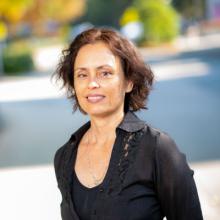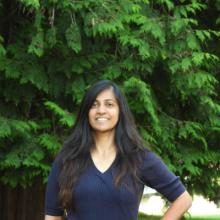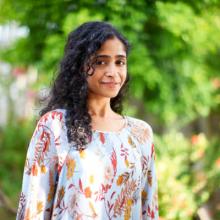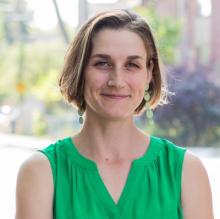Being a Public Scholar means being part of a network of scholars whose research aims to benefit the public in many creative and wonderful ways. For me in particular, it means building relationships with autistic communities, collecting their input on my research, documenting their lived experiences, and sharing what is learned with them, their networks of support, and beyond.
Research Description
My research explores mind wandering in autistic individuals. Mind wandering is when one’s attention shifts from external tasks or stimuli to internal trains of thought. When we mind wander we recall memories, plan for the future, make goals, or mull concerns, all of which factor into our quality of life and mental health. While there has been much research into the mind wandering of neurotypicals, very little is known about mind wandering in autistic individuals. As autistic individuals are prone to depression and anxiety, I believe investigating what they think about when their minds are free to move or linger as they wish will be helpful for those who might be experiencing mental distress. Exploring mind wandering in autistic individuals may also help them identify sources of pride or pursue their personal goals. To share my findings and encourage more research in this under-explored area, I will make a documentary that follows a mind wandering experiment and captures on camera what autistic individuals think about when they mind wander. The completed documentary will be submitted to film festivals to make the findings available to as large an audience as possible.
What does being a Public Scholar mean to you?
Being a Public Scholar means being part of a network of scholars whose research aims to benefit the public in many creative and wonderful ways. For me in particular, it means building relationships with autistic communities, collecting their input on my research, documenting their lived experiences, and sharing what is learned with them, their networks of support, and beyond.
In what ways do you think the PhD experience can be re-imagined with the Public Scholars Initiative?
In a time when science and education are met with increasing skepticism or suspicion, it is critical for researchers to engage with the public. Through the support of the PSI, PhD students can build meaningful and productive relationships with the communities their research aims to serve. The PSI puts a spotlight on the various ways research completed in the lab or in the real world can have a direct and positive impact on everyday, real world problems, and brings researchers and the general public closer together.
How do you envision connecting your PhD work with broader career possibilities?
After completing my PhD, I would like to continue working to help improve the quality of life for autistic individuals. By this I mean working with organizations that help autistic youth identify personal or career goals, develop friendships and connections to their communities, and in the process become more independent and confident individuals. The PSI will provide opportunities to develop a professional network that includes the types of people and organizations I hope to work with after completing my program.
How does your research engage with the larger community and social partners?
Autism research has made amazing progress over the years in many areas such as genetics, neural activity, and the impact on employment and social relationships, but it still often fails to provide autistic individuals the opportunity to offer their own perspectives. My research involves engaging with autistic individuals to learn about their internal, subjective experiences. I will also collaborate with organizations and clinicians who work with or support autistic individuals and their families.
Why did you decide to pursue a graduate degree?
I wanted to identify new methods for helping autistic individuals develop strong social skills, which could then help them build connections to their communities, and articulate and pursue what is meaningful to them. To do this, I knew I needed additional training in social attention and autism research, as well as a better understanding of current interventions targeted at developing self-determination and self-advocacy skills.
Why did you choose to come to British Columbia and study at UBC?
Before I decided to pursue a graduate degree, I worked in the film industry and was required to do a lot of international travel. The business trips to Canada were always my favorite --- I fell in love with the cities and the people. When I decided that I would study how to support autistic individuals in developing stronger social and communication skills, I knew I needed to begin by studying social attention, and Professor Alan Kingstone is one of the most respected researchers in this area. I was thrilled when I was offered a place in his lab. Being able to raise my children in a city as beautiful as Vancouver was an extra bonus.





